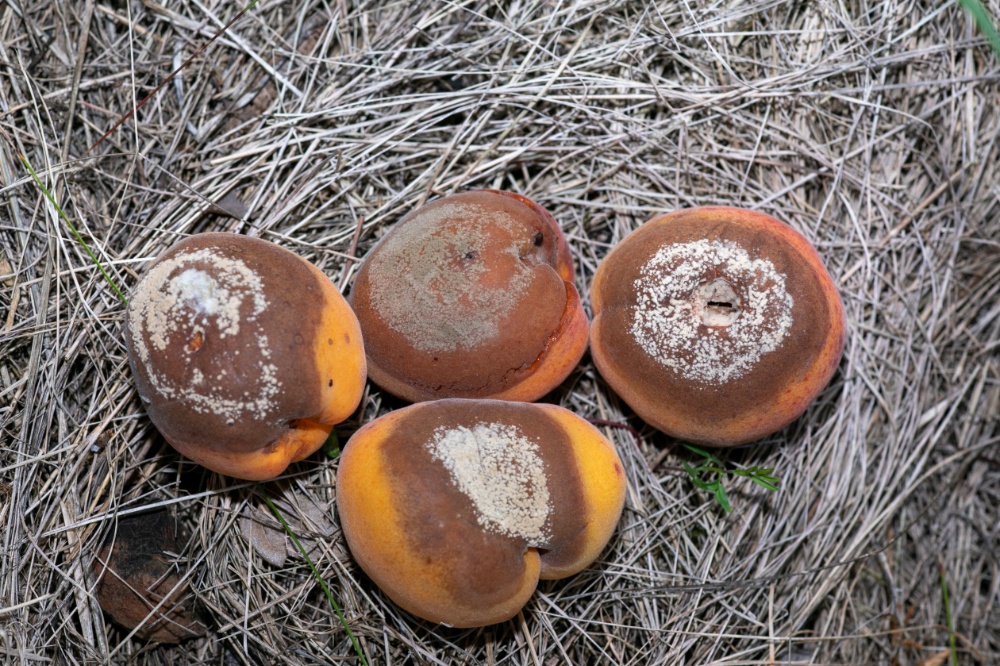HOCl: The Safe and Powerful Germ Killer
Introduction to Hypochlorous Acid (HOCl)
Hypochlorous acid (HOCl) is a powerful substance known for its ability to kill a wide range of harmful germs, like bacteria, viruses, and fungi. Since it's something naturally made by our immune system, HOCl is safe to use, works really well, and is also good for the environment. It is used in many areas such as healthcare, farming, and industry, making it a flexible solution for preventing infections. In this article, we'll look at how HOCl helps fight fungal infections and how HOCl generators are changing the way we prevent the spread of germs.

The Science Behind Hypochlorous Acid
At its core, hypochlorous acid is a weak acid with the chemical formula HOCl. It is produced when chlorine dissolves in water and dissociates. Unlike traditional disinfectants, HOCl is non-toxic and non-irritating, making it safe for skin contact and use in sensitive environments. Its antimicrobial action is due to its ability to penetrate cell walls and disrupt vital processes within microorganisms. This mechanism makes it highly effective against a wide range of pathogens, including hard-to-kill fungi.
Understanding Fungal Infections
Fungal infections are a global health concern, affecting millions of people each year. They can range from superficial skin infections like athlete’s foot to life-threatening systemic infections. Fungi thrive in warm, moist environments and can be challenging to treat with conventional antifungal medications, which often require prolonged treatment and may have side effects. The need for effective, safe, and sustainable antifungal solutions has never been more urgent.

The Role of HOCl in Infection Control
Hypochlorous acid’s antifungal properties are attributed to its ability to disrupt the cellular structures of fungi. Upon contact, HOCl damages the cell membrane of fungal cells, leading to cell death. This action is fast-acting and highly effective against a variety of fungal strains, including common pathogens like Candida albicans and Aspergillus. For infection control, HOCl can be used to disinfect surfaces, equipment, and even open wounds, reducing the risk of infection spread.
Benefits of HOCl Electrolysis Machines
HOCl electrolysis machines, designed to produce hypochlorous acid on-demand, are increasingly becoming the preferred method for generating HOCl. These machines work by passing an electrical current through a saltwater solution, converting it into HOCl. The benefits include:
Cost-effectiveness: Producing HOCl on-site eliminates the need for purchasing and storing chemical disinfectants.
Safety: HOCl is non-toxic and safe for use in food processing, healthcare, and homes.
Efficiency: These machines generate a consistent and potent supply of HOCl for immediate use.
The Evolution of Hypochlorous Acid Water Machines
Over the years, HOCl water machine technology has evolved significantly. Early models were bulky and required regular maintenance, but today’s HOCl generators are compact, easy to use, and highly efficient. Modern machines offer customizable concentrations of HOCl, catering to different disinfection needs, from general surface cleaning to more stringent infection control protocols in healthcare settings.
How HOCl Generators Work
HOCl generators rely on a process known as electrolysis. By passing an electrical current through a solution of water and salt (sodium chloride), these devices produce hypochlorous acid. The key reaction occurs in a specialized chamber that separates the positive and negative ions, resulting in the formation of HOCl on one side and sodium hydroxide (a cleaning agent) on the other. This technology ensures the production of a pure, highly effective disinfectant in real time.

The Effectiveness of HOCl Against Fungal Spores
Fungal spores are known for their resilience and ability to survive in extreme conditions. Traditional disinfectants often struggle to penetrate the tough outer shell of these spores. However, scientific studies have shown that HOCl can effectively neutralize fungal spores by damaging their protective layers and preventing their growth. This makes HOCl a superior option for environments prone to fungal contamination, such as hospitals, gyms, and agricultural settings.
Comparing HOCl Generators with Traditional Disinfectants
While traditional disinfectants like bleach and alcohol-based solutions have been widely used for decades, HOCl generators offer distinct advantages:
Non-toxic and eco-friendly: Unlike bleach, HOCl does not release harmful fumes or residues.
Broader spectrum: HOCl is effective against bacteria, viruses, and fungi, whereas some disinfectants only target specific pathogens.
Cost savings: In the long term, using HOCl generators reduces costs associated with purchasing chemical disinfectants.
The Safety of Hypochlorous Acid
When it comes to safety, hypochlorous acid is one of the safest disinfectants available. It is non-toxic, non-irritating, and can be used around humans, animals, and plants without causing harm. HOCl has been approved by regulatory agencies such as the U.S. Environmental Protection Agency (EPA) for use in food production and by the U.S. Food and Drug Administration (FDA) for wound care. Compared to conventional antifungal treatments, HOCl poses minimal risk of adverse effects.
The Environmental Impact of HOCl Electrolysis Machines
In the era of sustainability, HOCl electrolysis machines stand out as an eco-friendly alternative to chemical disinfectants. They require only water, salt, and electricity to operate, producing no harmful byproducts. Additionally, HOCl breaks down naturally into salt and water, leaving no lasting environmental footprint. This makes HOCl a preferred choice for organizations seeking to reduce their environmental impact.
Cost-Effectiveness of Hypochlorous Acid Water Machines
One of the primary reasons behind the growing popularity of HOCl water machines is their cost-effectiveness. By producing disinfectant on-site, users can significantly reduce expenses related to purchasing, shipping, and storing commercial disinfectants. In the long term, the savings from using HOCl generators far outweigh the initial investment in the machine.
Real-World Applications of HOCl Generators
HOCl generators have found applications across a wide range of industries:
Healthcare: Used for wound care, surface disinfection, and hand sanitizing.
Agriculture: Employed to disinfect equipment and prevent fungal outbreaks in crops.
Food industry: Applied for sanitizing surfaces and extending the shelf life of perishable goods.
Public spaces: Used for general cleaning in schools, gyms, and offices.
The Future of Hypochlorous Acid Technology
As research into hypochlorous acid continues, new applications for this versatile compound are likely to emerge. Scientists are exploring its potential for advanced medical treatments, agricultural innovations, and industrial disinfection solutions. Future developments may include more portable HOCl generators, enhanced concentration controls, and broader accessibility in developing regions.
Choosing the Right HOCl Generator for Your Needs
With so many options available, choosing the right HOCl generator can be overwhelming. Important factors to consider include:
Capacity: How much HOCl does the generator produce, and will it meet your needs?
Concentration: Can the machine adjust the concentration of HOCl for different applications?
Maintenance: How easy is it to maintain the generator, and what are the associated costs?
The Importance of Regular Maintenance for HOCl Electrolysis Machines
Like any device, regular maintenance of HOCl electrolysis machines is essential to ensure optimal performance. This includes cleaning the electrolysis chamber, replacing worn parts, and periodically testing the output concentration of HOCl. Proper upkeep will prolong the life of the machine and ensure consistent disinfection power.

Conclusion: The Power of Hypochlorous Acid in Antifungal Applications
In conclusion, hypochlorous acid stands out as a potent antifungal agent, offering a safe, effective, and environmentally friendly alternative to traditional disinfectants. HOCl generators provide a reliable way to produce this powerful compound on-demand, making them a game-changer in infection control across industries. With ongoing advancements in technology, the future of HOCl holds even greater potential for transforming how we approach fungal infections and broader disinfection needs.
